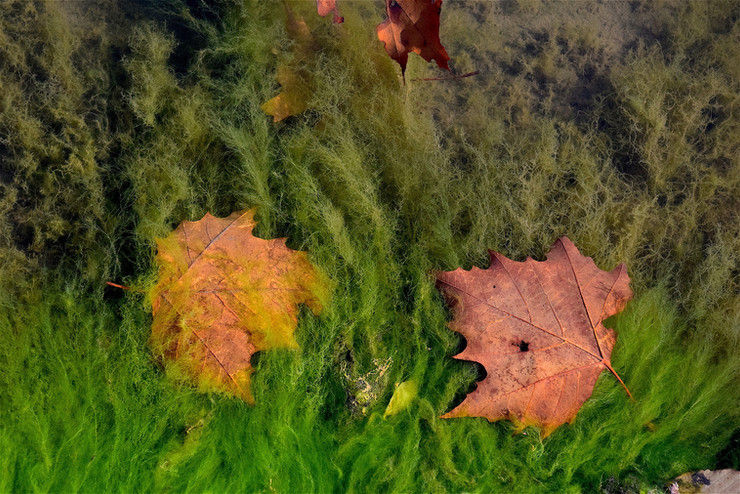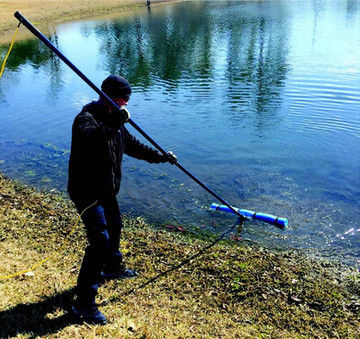
Fall can be quite a spectacular transitional season.
Your pond is also going through a fall transition. We recommend some fall cleaning to ensure your pond stays healthy throughout the fall and winter, which means less work come next spring. It is important to minimize dead leaves, broken branches and dead plants from getting into your pond; leaves, branches, animal waste, dead aquatic vegetation and algae make up much of the organic matter that may build up at the bottom of your pond. All this organic matter will begin to decompose, consume oxygen and turn into pond muck.

Rotten Egg Smell = Hydrogen Sulfide: The terrible odor linked to pond muck is due to a lack of oxygen. When oxygen levels get low, plant nutrients and metals, which are trapped in the sediment, dissolve into the water. Ultimately, little or no oxygen may result in the release of hydrogen sulfide, the rotten egg smell. As more nutrients and metals are released at the bottom of the pond, water quality gets even worse.
We encourage cleaning as a regular part of maintaining a healthy pond when seasons change, but cleaning before the winter freeze is especially important for your pond next spring.
- Koenders Cutter N Rake will rake out dead leaves, branches and can be used to cut out dead aquatic vegetation from your pond.
- A treatment of Nature’s Pond Conditioner Fall/Winter blend will reduce the nutrient load and effectively consume decaying organic matter (pond muck).
- Keep your pond aerated from the bottom to maintain high-quality water throughout the fall and winter.

A lightweight yet commercial strength, easy-to-use tool with interchangeable cutter and rake heads, and a removable floatation device.